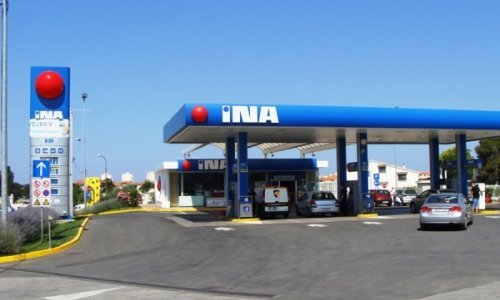The Croatian government adopted changes to the Shareholders' Agreement with Hungary's oil company MOL on the basis of a presentation under which the agreement had to be changed if a stakeholder's interest dropped below 50 percent, the Deputy Prime Minister and chairman of the INA oil company Supervisory Board, Ivan Suker, on Tuesday told a parliamentary commission investigating how MOL in 2009 acquired additional management rights in INA.
The Shareholders' Agreement was amended in January 2009. The number of members of INA's Supervisory Board was then increased from seven to nine, with MOL getting five seats, the Croatian government three, and INA's employees one. Under the amended agreement, the chair of the Supervisory Board was to be appointed by the government, the Management Board was to have six members, of whom three each would represent the government and MOL, and MOL was to nominate the chair of the Management Board.
The opposition members on the commission believe that MOL thus acquired the management rights of the majority owner even though it had not bought such a stake in INA, so they asked Suker why the government had agreed to such changes.
Suker said that negotiations on changing the Shareholders' Agreement were conducted by the then Deputy PM Damir Polancec.
Even though he was formally a member of the commission in charge of amending the Shareholders' Agreement, Suker said that he did not attend any of its sessions. He also could not say if the commission had held any sessions, adding that he had not even read the commission's report on negotiations with MOL, for which he voted at a government session.
When asked by Gordan Maras of the Social Democratic Party (SDP) if he had been acquainted with the commission's conclusions before the government decided to amend the Shareholders' Agreement, Suker answered in the negative.
"No, there were two or three government sessions at which Deputy PM Polancec informed the government of the course of the negotiations," he said.
Asked if at the time he believed that changes to the Shareholders' Agreement were necessary, Suker said that the initial Shareholders' Agreement of 2003 read that the agreement had to be changed if the stake of one of the stakeholders dropped below 50 percent.
However, when the chair of the parliamentary commission, Dragica Zgrebec of the SDP, read parts of the initial agreement saying that the agreement was to be amended only after the stake of one of the stakeholders dropped below 25 percent, Suker said, "The government was informed of the 50 percent part and I would not say anything further. I don't want to speak about something I did not take part in," Suker said.
Asked by Zlatko Koracevic of the Croatian People's Party (HNS) if one could say that crucial government decisions on INA were made at the time when he was not at the helm of INA's Supervisory Board and at the proposal of the commission in whose work he did not participate, Suker said, "That's right".
He also gave an affirmative answer when Koracevic asked him if he knew that the government's advisor in the process of amendment of the agreement with MOL was attorney Zoran Markovic, one of the managers of the Fima Ami company who is being linked with wrongdoings in the Podravka food company, but Zgrebec said she would not allow questions regarding ongoing court proceedings.
Suker also said that the initial Shareholders' Agreement gave MOL key positions in INA's management and that decisions regarding financing, procurement and investment could not be made without MOL's approval.
He also dismissed claims from SDP member Gordan Maras that INA's Supervisory Board under his chairmanship (2004-2008) did not honour investment projects envisaged by INA's medium-term development plan, which was part of the agreement whereby MOL acquired 25 percent of INA's shares.
"That's not true. If there had been operational plans, I don't see any reason why the Supervisory Board would have to adopt them again in 2005," Suker said.
He went on to say that the upgrading of INA's refinery in Rijeka was nearing completion and that progress in Sisak was visible in the field. As proof of INA's development he also cited the fact that the price of INA's stock had tripled since 2003.
Suker also dismissed Maras's claims that Croatia had taken over INA's gas business, saying that the implementation of the provision on INA's gas business had been prolonged until the end of this year, "because it is not in INA's interest".
He added that the government had only bought the gas storage facility Okoli, whose 2009 profit he said had already covered 15 percent of the investment.

































